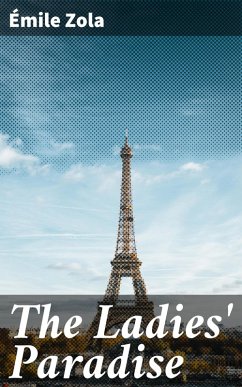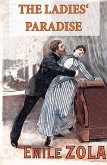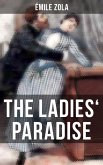In "The Ladies' Paradise," vâmile Zola presents a vivid exploration of the changing dynamics of consumer culture and female identity in late 19th-century France. Written in Zola's characteristic naturalistic style, the novel centers around a lavish Parisian department store, a symbol of modernity and capitalism that both entrances and ensnares its patrons. Through rich descriptions and the intricate interplay between characters, Zola critiques the societal implications of capitalism while delving into the life of Denise Baudu, a humble shopgirl whose aspirations collide with the grandeur of the increasingly mechanized retail world. This context places Zola as both a keen observer of his time and a philosopher of the impact of consumerism on personal existence and relationships. vâmile Zola, a leading figure of the literary movement known as naturalism, was deeply influenced by his surroundings and the tumultuous socio-economic shifts of his era. His experiences in the rapidly industrializing France and his interest in the plight of the working class imbue "The Ladies' Paradise" with a poignant realism. Zola'Äôs dedication to portraying life authentically, often through the lens of his political beliefs, also reflects his commitment to social justice and reform. This novel is a must-read for anyone interested in the confluence of gender roles, consumerism, and the socio-political landscape of the 19th century. Zola's insightful portrayal of the complexities faced by women navigating a changing world not only entertains but also provokes critical thought about the costs of progress. Readers will find themselves captivated by the rich tapestry of characters and the vibrant setting, making it an essential addition to the canon of realist literature.
Dieser Download kann aus rechtlichen Gründen nur mit Rechnungsadresse in A, B, BG, CY, CZ, D, DK, EW, E, FIN, F, GR, H, IRL, I, LT, L, LR, M, NL, PL, P, R, S, SLO, SK ausgeliefert werden.









